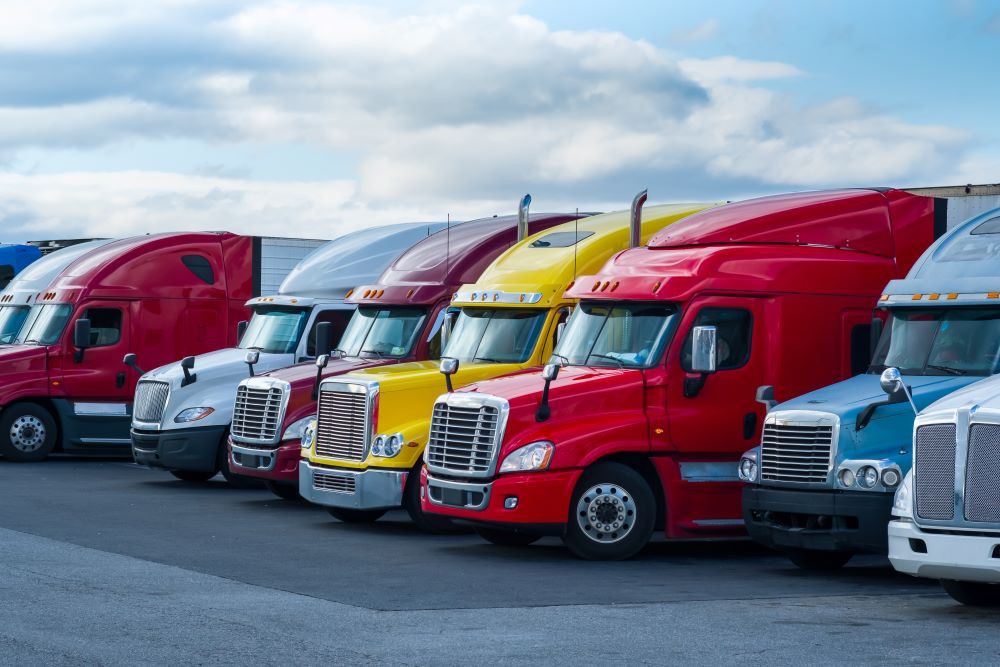Determining liability is necessary if you were hurt in a crash with a tractor-trailer and you plan to request compensation for your injuries. While many parties can be held liable following a truck-involved collision, fleet companies are one of the more common defendants listed in lawsuits. If you’re curious about how attorneys go about investigating trucking company negligence in accident cases in North Carolina, our legal team at Paynter Law shares the details below.
Understanding Liability for Tractor-Trailer Crashes
Trucking companies, like truckers, auto mechanics, and parts manufacturers, have one important responsibility: to do their part to minimize the chances of causing harm to others, referred to as exercising their duty of care. Truck accident lawyers often use the word “negligence” to refer to instances in which a person or entity didn’t uphold that obligation to exercise safety when sharing the road with others, and someone gets hurt.
Liability is the process of holding negligent parties accountable for their wrongdoing. North Carolina law allows injury victims to pursue compensation from trucking companies and others who turn a blind eye to safety, provided they can prove the following elements of negligence:
- The defendant (i.e., trucking company) owed a legal duty to the plaintiff (i.e., injury victim)
- The defendant breached that duty of care
- The plaintiff suffered harm due to the defendant’s actions
- The defendant amassed losses attributable to the defendant’s actions
It’s important to note that North Carolina contributory negligence rules do not allow you to recover damages if your actions resulted in the crash.
Common Types of Trucking Company Negligence
While most people may automatically assume truckers are responsible for all collisions involving 18-wheelers, their employers, the fleet companies, often are instead for some of the following reasons:
- Poor hiring practices: There’s been an uptick in veteran truckers retiring and difficulties in attracting recruits into the profession in recent years, all at the same time as demands for deliveries of products have increased. These challenges have led transportation companies to cut corners, including hiring less experienced truckers or veteran ones with troublesome safety records and being more permissive of driver substance abuse.
- Inadequate maintenance: Trucking companies only make money if their trucks carry goods out on the road, so they often put off regular maintenance or known repairs, hoping to stave off having to put their fleet out of commission. The downside of them doing this is that the rest of us end up sharing the road with non-roadworthy big rigs, which increases their risks of causing a wreck.
- Violations of laws: There are federal hours of service rules and pre-trip inspection requirements, for example, that long-haul interstate truckers must adhere to. A tractor-trailer operator’s employer may establish unrealistic delivery times by not building in ample time for required rest periods or for multi-point inspections to be performed and go as far as to threaten the loss of their job if they don’t get the load delivered on time — even if it involves skirting safety.
Compiling Evidence To Prove Trucking Company Was Negligent
Proving a trucker’s employer is liable for an accident ultimately comes down to how much evidence you can preserve and assessing whether it points to trucking company negligence. Some critical evidence in truck accident cases like these may include:
- Trucker personnel files: This includes records revealing a poor driving record, inadequate operator licensing, or insufficient training represent negligent hiring practices contributing to the truck accident.
- Trucking company safety records: These will show important details like how many trucks and drivers a fleet company has, the number of crashes they’ve had or other investigations they’ve undergone.
- Electronic correspondence: This includes emails or texts where the employer may have encouraged its drivers to violate laws to meet established deadlines, such as federal hours of service rules.
- Truck maintenance records: Fleet companies should notate their tractor-trailers’ scheduled maintenance and repairs. Whether or not the trucking company addressed those issues could indicate their liability for a truck-involved wreck.
- Bills of lading: These documents detail the types of goods, their quantity, and their origin and destination. Bills of lading, along with truck weigh station records, may shed light as to whether a commercial carrier overloaded its trailers, a factor that can increase its risk of causing a collision.
- Electronic logging devices: Attorneys often use data from this system onboard the semi-truck to corroborate claims that the transportation company forced their drivers to not take breaks and continue driving beyond federal limits.
The list of potential evidence above isn’t exhaustive. Other negligent actions a trucking company takes may cause a semi-truck collision, leaving them liable for any injuries or fatalities that occur, too.
Why To Contact Our North Carolina Truck Accident Lawyers
Proving liability is necessary to be eligible to recover compensation for any accident-related damages you sustained. You can expect the attorney you speak with during your free initial consultation at our law office to understand the elements of negligence you must meet to file an insurance claim against a trucking company in North Carolina and filing timelines for doing so.
You can also count on our firm, Paynter Law, to aggressively advocate for your rights through to your case’s successful conclusion once we commit to representing you. So, if you’re seeking to learn more about your right to hold a negligent trucking company liable for the harm they caused you, contact us now for a no-risk, no-obligation complimentary case review right away.

